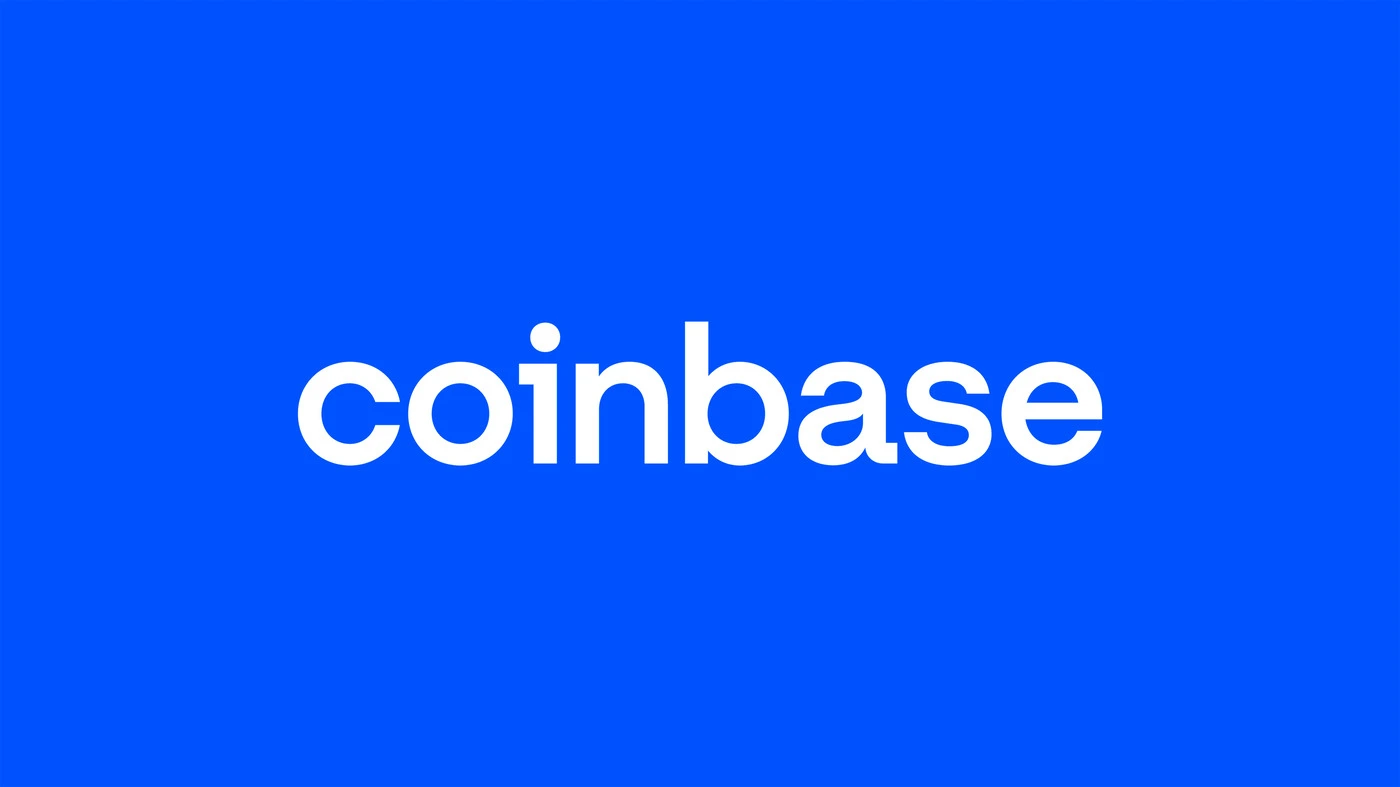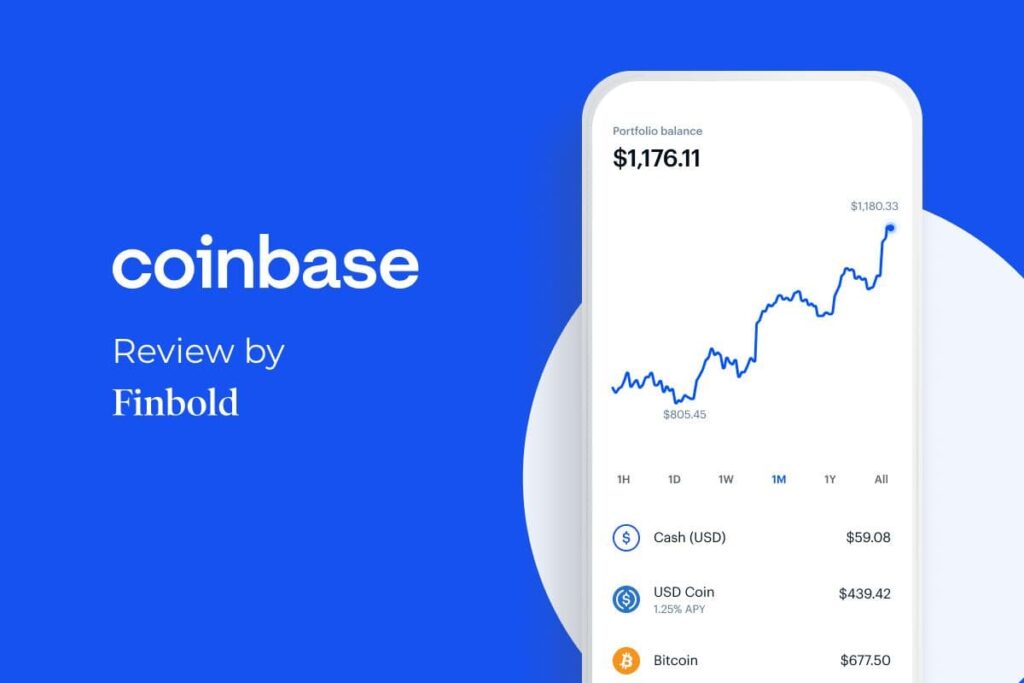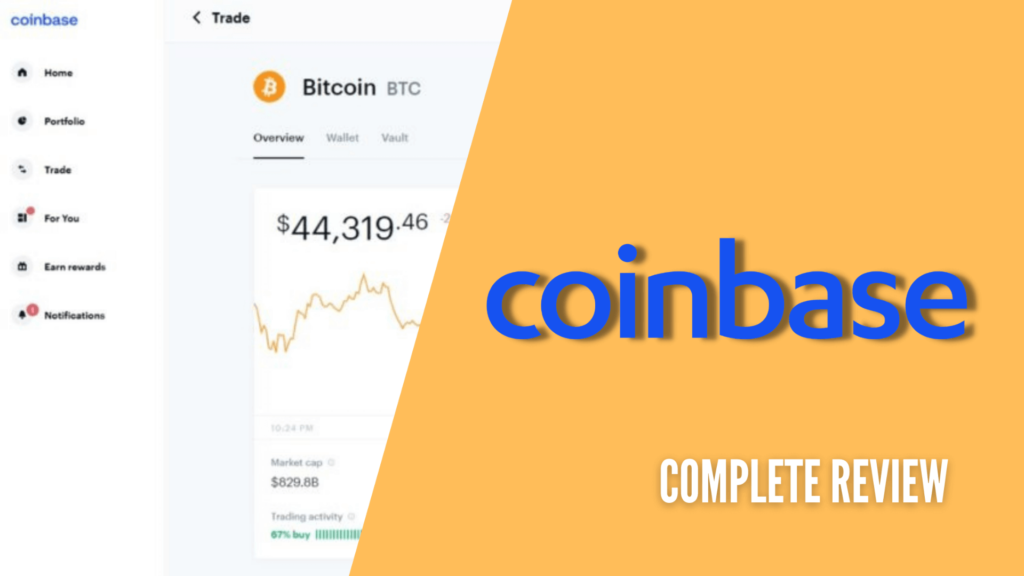Comprehensive Coinbase Review: A Deep Dive into Its Features, Fees, and More
by Mian786

Coinbase is widely regarded as one of the leading cryptocurrency exchanges globally, offering a range of services that cater to both beginners and experienced traders. In this detailed review, we will thoroughly examine Coinbase’s features, benefits, drawbacks, and other key factors that could help you determine if it’s the right platform for your crypto needs.

Overview of Coinbase
Founded in 2012 by Brian Armstrong and Fred Ehrsam, Coinbase quickly grew to become one of the most well-known cryptocurrency platforms in the world. Headquartered in the United States, Coinbase is known for its user-friendly interface, making it easy for newcomers to the crypto space to buy, sell, and store digital currencies.
Coinbase’s mission is to create an open financial system for the world, enabling anyone to access cryptocurrencies. Since its inception, the platform has garnered widespread recognition, having launched as a Bitcoin brokerage service before expanding its offering to include a variety of digital assets, trading features, and financial services.
Key Achievements
- Public Listing: Coinbase became the first publicly traded cryptocurrency exchange in the United States in April 2021 through a direct listing.
- Global Reach: Coinbase operates in over 100 countries and has more than 89 million verified users worldwide.
- Wide Range of Cryptocurrencies: The platform supports numerous digital assets, including Bitcoin, Ethereum, Litecoin, and many others, though its selection is more curated compared to some competitors.

Features of Coinbase
1. Coinbase Brokerage Service
Coinbase’s primary offering is its brokerage service, where users can buy and sell a variety of cryptocurrencies. This service is especially appealing to newcomers due to its simplicity and ease of use. The platform supports various payment methods, including bank transfers, debit cards, and PayPal. While it provides a convenient way to get started with crypto, it also comes with higher fees compared to more advanced trading options.
Key Benefits:
- User-Friendly Interface: The platform’s design is intuitive, catering to beginners who may not be familiar with crypto trading.
- Variety of Payment Methods: Coinbase accepts several payment methods, including credit/debit cards, bank accounts, and PayPal (in specific countries).
However, it is important to note that Coinbase holds custody over your crypto assets, meaning users do not have direct control over private keys unless they use Coinbase Wallet.
2. Coinbase Advanced
For more experienced users, Coinbase offers an advanced trading interface, known as Coinbase Advanced (previously Coinbase Pro). This service is geared toward traders who want more control over their trades and access to advanced tools and features, such as order book views, advanced charting, and lower trading fees.
Key Features:
- Lower Fees: Trading fees on Coinbase Advanced are lower than those on the basic platform and are based on your trading volume.
- Advanced Trading Tools: Provides access to more technical tools for chart analysis and trade execution.
3. Coinbase Earn
Coinbase Earn allows users to stake certain cryptocurrencies and earn rewards. The process is simplified, so even those without deep technical knowledge can earn passive income through staking.
Key Advantages:
- Easy Staking: Users can stake a variety of Proof-of-Stake coins and earn staking rewards without the need for special hardware or technical expertise.
- Education-Focused: Coinbase Earn also incentivizes users to learn about cryptocurrencies through interactive lessons, rewarding them with crypto as they progress.
4. Coinbase Wallet
Coinbase Wallet is a separate product from the main Coinbase exchange, providing users with a non-custodial wallet that stores private keys locally on their devices. It is compatible with numerous digital assets and allows users to interact with decentralized applications (dApps).

Benefits:
- Non-Custodial: Users have full control over their funds.
- Integration: Easily connects with Coinbase exchange for seamless transactions.
- DeFi Access: Direct access to decentralized finance (DeFi) applications and dApps for further diversification of assets.
5. Coinbase Commerce
Coinbase Commerce is designed for businesses, allowing merchants to accept cryptocurrency payments on their websites. Supported by popular content management systems (CMS) like Shopify and WooCommerce, Coinbase Commerce provides a simple solution for integrating crypto payments into e-commerce sites.
Key Features:
- Merchant Integration: Supports multiple CMS platforms for seamless integration into online stores.
- Cryptocurrency Payment Gateway: Businesses can receive payments in Bitcoin, Ethereum, and other supported cryptocurrencies.
Supported Cryptocurrencies
Coinbase supports a curated selection of cryptocurrencies, which is not as extensive as some other exchanges, but this ensures that only reliable and well-vetted assets are offered. Some of the major cryptocurrencies supported on Coinbase include:
- Bitcoin (BTC)
- Ethereum (ETH)
- Solana (SOL)
- Dogecoin (DOGE)
- Litecoin (LTC)
- Polkadot (DOT)
- Shiba Inu (SHIB)
While Coinbase does not offer as vast a selection as some other exchanges, it focuses on providing a more secure and reliable trading environment by listing only established coins.
Payment Methods
Coinbase supports a variety of payment methods, allowing users from different regions to fund their accounts and purchase cryptocurrencies. These methods include:
- Bank Account ACH (US), SEPA (EU)
- Wire Transfer
- Debit/Credit Cards
- PayPal (for specific regions)
- Apple Pay & Google Pay (for buying tokens)
The platform’s flexibility with payment methods enhances its accessibility, especially for newcomers to crypto who are familiar with traditional payment methods.

Coinbase Fees
Coinbase’s fee structure has been a subject of scrutiny. While the platform offers an easy-to-use service, its fees are generally higher than those found on more advanced platforms. Fees can vary depending on the transaction method, size, and country of residence.
Typical Fees:
- Trading Fees: Coinbase charges a spread of about 0.5% for cryptocurrency purchases and sales. However, fees can be higher for credit card purchases (up to 3.99%).
- Coinbase Advanced Fees: Trading fees on Coinbase Advanced start at 0.60% but decrease as users trade higher volumes.
While the fees are not the lowest in the market, Coinbase remains a popular choice due to its user-friendly interface and wide range of supported services.
Customer Support
Customer support on Coinbase has faced criticism, particularly for slow response times and limited availability of support channels. However, Coinbase does offer an extensive help center with answers to frequently asked questions and troubleshooting guides. The company is continuously working to improve its support services.
Security Measures
Coinbase implements a range of security features to protect users’ funds and personal information. These include:
- Two-Factor Authentication (2FA): An added layer of security during login and transactions.
- Cold Storage: A significant portion of user funds are stored offline, reducing the risk of hacks.
- Insurance: Coinbase provides insurance for cryptocurrency stored in its exchange hot wallets.
While Coinbase is generally considered secure, it is always advisable to store significant holdings in a non-custodial wallet.
Supported Countries
Coinbase is available in over 100 countries worldwide, including:
- United States
- United Kingdom
- Germany
- Canada
- Australia
- Brazil
- India
The platform’s global presence allows users from many countries to buy and sell cryptocurrencies, although availability of specific coins and features may vary by region.
Coinbase vs. Other Exchanges
When compared to other leading exchanges like Binance or Kraken, Coinbase stands out in terms of ease of use and accessibility for beginners. However, platforms like Binance typically offer lower trading fees and a wider selection of cryptocurrencies. Coinbase excels in its reputation and simplicity, while competitors may provide more advanced tools for seasoned traders.
Conclusion – Is Coinbase a Good Choice?
Coinbase is a reliable and reputable exchange, especially for beginners who are new to cryptocurrency trading. While its fees may be slightly higher than some competitors, the platform’s user-friendly interface, security features, and range of services make it an attractive choice for many users. However, for those seeking advanced trading tools or lower fees, Coinbase Advanced or alternative exchanges like Binance may be a better fit.
Frequently Asked Questions
1. Is Coinbase safe?
Yes, Coinbase implements robust security features, including two-factor authentication, cold storage for most funds, and insurance for assets stored in its hot wallets.
2. What are Coinbase’s fees?
Fees on Coinbase vary depending on payment methods and transaction size, with a typical fee of 0.5% for trades and up to 3.99% for credit card purchases. Coinbase Advanced offers lower fees starting at 0.60%.
3. Can I use Coinbase in my country?
Coinbase supports over 100 countries worldwide, but availability of specific coins and features may differ by region. Check the Coinbase website for a full list of supported countries.
4. How do I store my crypto securely on Coinbase?
Coinbase stores crypto in a custodial wallet by default. For added security, consider transferring your assets to a non-custodial wallet or cold storage for long-term holding.
Viewed: 2,463 times Coinbase is widely regarded as one of the leading cryptocurrency exchanges globally, offering a range of services that cater to both beginners and experienced traders. In this detailed review, we will thoroughly examine Coinbase’s features, benefits, drawbacks, and other key factors that could help you determine if it’s the right platform for…
Recent Posts
- Taurus Horoscope 2026: Love, Career & Financial Predictions
- Aries Horoscope 2026: Love, Career, Finances & More
- Pisces Horoscope 2026: Love, Career, Finances & Health Predictions | Vedic Astrology Insights
- Bezpieczeństwo i zaufanie w ivibet kasyno: co warto wiedzieć
- cPen Network: Revolutionizing Mobile Cryptocurrency Mining
Recent Comments
Categories
- AI Power
- Aries
- Astrology
- Best Exchanges
- Best Laptop
- Best Phones
- Binance
- Changelly
- Crypto
- Crypto.com
- Emojis
- Exchanges
- Free Tools
- Freelancer
- Gaming
- Guide
- Guige
- Horoscope
- Kucoin
- Laptop
- Mobile Phones
- Numerology
- Online Earing
- Online Earning
- Password Generator
- Phones
- Pisces
- Taurus
- Uncategorised
- Username Generator
- Wordpress
